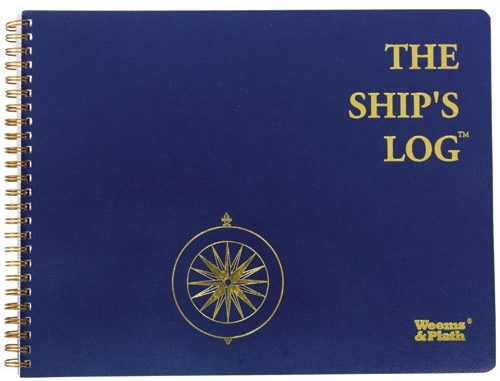
Logbooks- what, why and how to use one.
What are they for and why might they be important? Start with the factory published one size fits all logbook. Or maybe not…
Does it fit your vessel? Number of engines, fuel tanks, water tanks and ease of use.
Types of Logs
During my time operating industrial marine boats in the oil field we had a rough log (hand written) and finished log, better hand written, clear concise and legible.
If any issue were to be investigated the rough log was the copy everyone wanted to see, it had real unfiltered information. The finished log could have been “cleaned up”.
As a pleasure boater the logbook can be your tool to track and trend many topics including fuel burn and oil consumption. People talk about a guest log and a mechanical log, thereby giving you three logbooks to maintain.
Again as a pleasure boater I believe you should trim down the paperwork (after all that is why you left the corporate world) and make your own logbook, something that fits your boat and personality. Print out a few copies on heavier copy paper, 24lb, not the ordinary 20lb copy paper. Three hole punch them and put into a nice binder.
Layout the daily facts and make them user friendly (another corporate slogan I do believe in) and just fill in the blanks.
Soon you will be able to determine your fuel burn, oil usage, filter replacement. This will help you make inventory decisions based on the trends you recorded over the weeks and months.
What about capturing the fun?
In an open space you can fill in guests names, their contact info and their emergency contact info.
Start making a sample of your perfect log sheet or email us. We can send our version straight to you, free. Use it, adjust it and share with other boating friends.
Cruise safe and enjoy the sunset at anchor.
